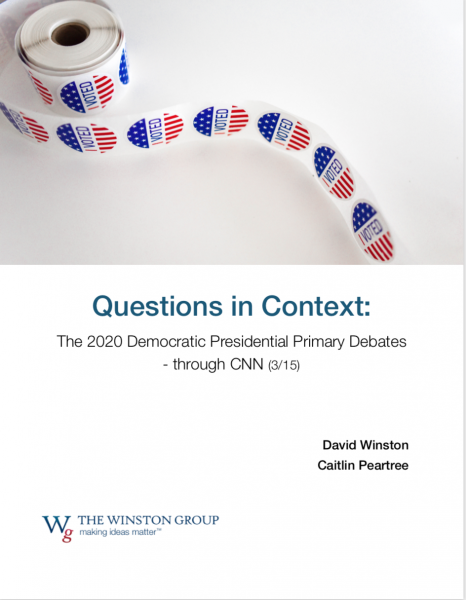The Winston Group’s David Winston writes in today’s Roll Call about Joe Biden’s calls for unity since the election, in contrast with Congressional Democrats’ seeming pursuit of a more progressive agenda.
When you lose seats like Florida’s 27th District or Iowa’s 2nd or Texas’ 23rd, perhaps a little introspection on the part of the speaker might be in order. Perhaps rethinking a progressive agenda that is at odds with a center-right country is a good first step. But if the events of the past couple of weeks are any indication, congressional Democrats are gearing up for more ideological battles, not preparing for peace talks.
Read the full piece here.



